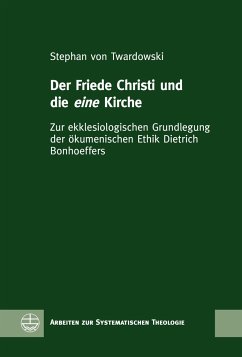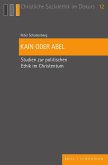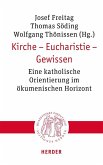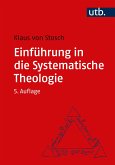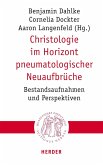In seinen einschlägigen Vorträgen im Rahmen der ökumenischen Bewegung in den frühen 1930er Jahren entfaltet Dietrich Bonhoeffer (1906-1945) angesichts der brennenden Frage nach Wesen und Auftrag internationaler ökumenischer Gemeinschaft Ansätze einer ökumenischen Theologie, die als Fundament, Ausgangspunkt und Orientierung kirchlichen Handelns dienen soll. In der theologisch begründeten Verknüpfung von Wahrheitssuche und empirischer »Existenzform« der Kirche werden in den Überlegungen Bonhoeffers Grundaspekte einer theologisch kohärenten ökumenischen (Friedens-)Ethik erkennbar.Ausgehend von dessen Erstlingswerk »Sanctorum Communio« (1930) untersucht Stephan von Twardowski die ekklesiologische, christologische und anthropologische Grundlegung und die Tragweite der frühen ökumenischen Theologie und Ethik Dietrich Bonhoeffers.[The Peace of Christ and the One Church. The Ecclesiological Foundation of Dietrich Bonhoeffer´s Ecumenical Ethics]In his early speeches within the ecumenical movement between 1932 and 1935 facing the burning issue of the nature and the mission of the international ecumenical community Dietrich Bonhoeffer (1906-1945) develops aspects of an ecumenical theology, which claims to serve as fundament, origin and orientation for the Church's action and commitment. In the theologically based connection between seeking the truth on the one hand and the empiric existence of the Church on the other hand Bonhoeffers deploys central aspects for a theologically coherent ecumenical (peace) ethics.Beginning with Bonhoeffer´s first work »Sanctorum Communio« (1930) Stephan von Twardowski analyses the ecclesiological, christological and anthropological foundation and relevance of Dietrich Bonhoeffer´s early ecumenical theology and ethics.
Bitte wählen Sie Ihr Anliegen aus.
Rechnungen
Retourenschein anfordern
Bestellstatus
Storno

